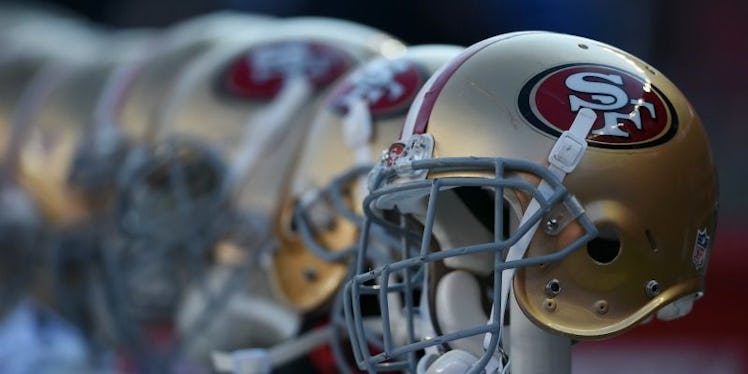
Scientists Develop Helmetless Drills That Could Change Football Forever
While no one can say for certain what the specific long-term health effects are for athletes who endure repeated head injuries, scientists know such occurrences can lead to brain damage and disease.
The NFL is in uncharted waters wherein the development of player safety is gaining as much popularity as the sport of football itself.
How can we make the game safer? Is it even possible?
Professor Erik Swartz, the chairman of the department of kinesiology at the University of New Hampshire, is part of a group of head-injury experts who may have found a way to decrease head injuries and revolutionize how football is played.
When football helmets were modified with hard shells in the '50s and '60s, players immediately started using their heads as tackling weapons. As a result, head and neck injuries occurred more frequently, according to Swartz.
Now, Swartz, who played rugby in college, and his team believe having football players periodically practice without the use of helmets could not only lead to a decrease in head and neck injuries, but change the fundamental way the game is played.
In 2014, Swartz brought his training program to the UNH football team, which began testing his theory.
During the preseason, half of the varsity team practiced twice a week sans helmets. During the regular season, that same group of players practiced once a week without headgear.
Using sensors to track the amount and degree of head impacts, it was determined, by the end of UNH's season, players who practiced with Swartz's helmetless drills were hitting their heads roughly 30 percent less in practices and games than players who practiced with helmets 100 percent of the time.
Swartz said,
The athletes in the intervention group had learned how to tackle and play.
UNH's coaches echoed those sentiments. This season, the majority of the team implemented the helmetless drills. The results of the 2015 experiment have yet to be tallied, but Swartz and his colleagues expect similar results to the initial 2014 test.
Still, Swartz isn't ready to say all teams should ban practicing with helmets, and his group refused to share their exact helmetless drill program with many Division I football programs that requested it.
He said there's much more testing to be done at every level of the game.
We may finally be on the right path to making football safer, which is something players, coaches, owners, fans and everyone involved with the game should get behind.
Citations: How Training Without Helmets Could Reduce Head Injuries (The New York Times)